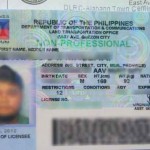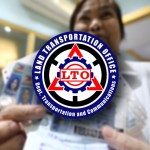Ten reasons to have a BPO presence in the Philippines:
- “Best-in-the-business” CSAT scores: the Philippine’s scores for call-center customer satisfaction far outperform the scores found in Latin America and the subcontinent. They even outperform captive centers in North America. Although the first-time resolution rate may sometimes not rank as high as the rate found in subcontinental centers, the total experience customers perceive they had with a Filipino agent is better than the experience found anywhere else. More on that as we proceed, so don’t click away!
- Filipinos demonstrate great flexibility to reach client needs. While working in the Emirates and in Qatar in 2002, I hired agents from the subcontinent and from the Philippines. Something about agents arriving in their Bentleys made me think perhaps a more motivated staff may make sense. Was I ever right. All three teams (Pakistani, Filipino and Indian) did a great job. But the Filipinos made a faster transition, and outdistanced their subcontinental rival agents within a matter of weeks. I knew in 2002 I would be spending a lot more time in the Philippines! Filipinos had an innate ability to find a way to please their customers, and got to the point of comfort with their scripts faster than their rival agents. It was a friendly competition, and they raised the bar, helped their subcontinentalounterparts and introduced them to the fine Pinoy art of “gimmicks”.
- Many small companies are now moving high-end American ITO work to the Philippines as a result of vastly improved (and improving) ITO capabilities. One company, Net2Globe Interlink, is monitoring the IP traffic for Mexico’s largest telco provider. Anthony Batte, Net2Globe President, says the VoIP engineers of the Philippines are as good or better than any network engineers on the planet. Another Canadian firm, located in Ortigas, is working with Web 2.0 applications for online applications. The programmers and network engineers in the Philippines make about $1,000 a month, as opposed to their North American counterparts who make triple that.
- Capacity: many call centers opened during the “Gold Rush” over the last few years, only to fail due to lack of clients, working capital, or contact center expertise. With that said, there are dozens of centers with over 50 seats sitting empty, waiting for business or for a buyer. These centers can be purchased for 30 cents on the dollar for the initial investment of furniture, and equipment in most cases.
- The Philippines has a number of mature and organized associations, in particular the Business Processing Association of the Philippines (BPAP), and the Call Center Association of the Philippines (CCAP). According to Oscar Sanez, CEO of the BPAP, there are over 400,000 college graduates a year in the Philippines. Oscar’s organization is helping to provide scholarships for any and all of these graduates for advanced training in the call center and BPO space. No outsourcing group on the planet could claim to have as much influence in a country, including the famous NASSCOM of India. The CCAP offers similar lobbying for contact center concerns. These two organizations are a powerful voice for the industry in the Philippines and sets the Philippines apart from most other outsourcing locales.
- Cultural alignment with North America: Filipinos not only get North American culture, they live it in an amplified way. American music and television is prevalent and use of North American slang is ubiquitous. Filipino agents typically have no problem with free-form conversation with their North American customers as a result.
- The Filipino population includes a large number of English-speakers. While there is considerable discussion about the declining quality of English demonstrated by job applicants now that there are nearly 250,000 contact center agents, English is still spoken by almost all Filipinos, including manual labourers, guards, domestic helpers and even taxi drivers. Nowhere else in the world can you find so many people that have conversational English outside of North America. From 1898 to 1946 the Philippines was a de facto US colony and has remained close to the US since gaining independence.
- Emerging outsourcing domains like commercials are now blossoming in the Philippines. Bobby Nelson, an Iranian-Swiss expat living in the Philippines for the last 15 years, owns Rainbow Talent Agency in metro Manila that is taking advantage of the hot new outsourcing sector of advertising. Bobby says the North American love affair with Pinoy beauty made the Philippines a natural destination for advertising for print, television and media for major consumer goods giants like Procter & Gamble, and Uniliver. Other areas of expertise now booming in the Philippines include unlikely domains like animation, medical tourism and English-teaching online. Brian Cho, COO of POMIC, a wholly-owned subsidiary of POSCO Steel, the largest Korean steel manufacture, says he could not think of placing his contact center anywhere else besides the Philippines to teach English to the POSCO steel employees. Adds Ivan Kim , the president of POMIC, the Korean students of POSCO Steel look forward to their daily lessons with their Pinoy teachers, who are more friends than teachers.
- Among North American customers, there is a general acceptance of the light Filipino accent as compared with the subcontinent. Many Filipinos have Spanish names and an accent that does not sound Asian. In many cases, if the customer detects an accent, they assume they are talking to an American of Latin American descent as opposed to the pronounced accents of the subcontinentals.
- Among other forms of government support, a number of fiscal incentives exist to encourage the establishment of BPO operations in the country. The Philippine Economic Zone Authority (PEZA) is an agency that grants fiscal and non-fiscal incentives to enterprises located in special economic zones, which are selected areas that are highly developed or that have the potential to be developed into industrial, tourist and recreational, commercial, banking, investment and financial centres. The Special Economic Zone Act of 1995 identified a number of these zones. Upon registration with PEZA, a business establishment operating within a free zone is entitled to all the incentives available to a business enterprise registered with the Board of Investments (BOI) under the Omnibus Investment Code (OIC). In addition, after the lapse of the income tax holiday, a business establishment in a free zone has the privilege of paying a tax at the preferential rate of 5% of its gross income, which shall be in lieu of all local and national taxes except real property taxes on the land in the case of real estate developers. Other additional incentives available to PEZA-registered business establishments include special tax treatment of merchandise within the free zones, priority when it comes to the allocation of foreign exchange from the BSP and accelerated depreciation for fixed assets. (From The Report: The Philippines 2008 by the Oxford Business Group). PEZA provides outsource companies with a seven-year tax holiday and has facilities throughout the Philippines. BOI has similar tax holiday schemes but for one to three years.
Contributor: Russ Sandlin
Source: http://www.ssonetwork.com/business-process-outsourcing/articles/top-ten-reasons-to-have-a-bpo-presence-in-the-phil/
read more




